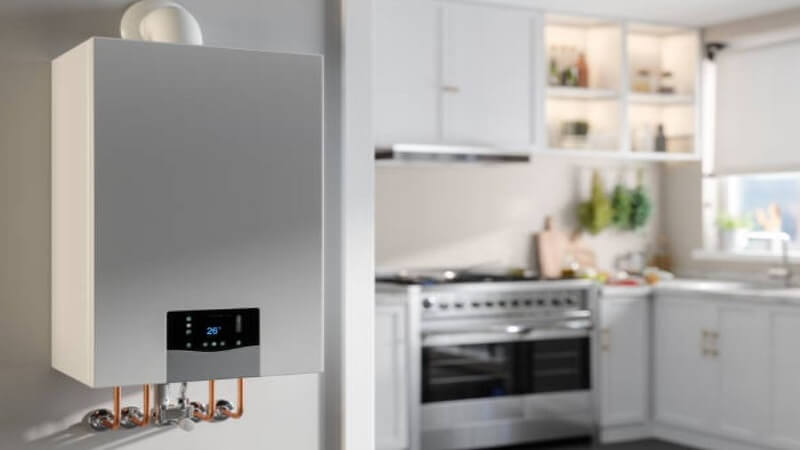Installing a new boiler is a major investment that can significantly improve the comfort and energy efficiency of your home. Whether you’re replacing an old, inefficient unit or upgrading your heating system entirely, it’s essential to understand the key factors involved in boiler installation. If you live in East Yorkshire, particularly in Hull, here are the most important things you should consider before moving forward with a boiler installation in Hull.
1. Know Your Heating Needs
Let’s start discussing your home’s heating needs first. Boilers can be found in many varieties and sizes, and selecting an inappropriate one can result in energy bills that are higher than expected or in heating that is insufficient. The size of your home, the number of bathrooms, and the kind of insulation you posit are issues that will be important in determining what type of boiler you should have. Girls in Hull usually choose combi boilers for their advantage of small space and their feature of producing hot water whenever you need it without a separate tank.
2. Type of Boiler
There are three important types of boilers that are available on the market: combi, system, and regular (also called conventional) boilers. Combi boilers are suitable for smaller homes, system boilers are the best option for homes with more than one bathroom, and regular boilers are more appropriate in the case of homes that already have regular central heating and hot water systems in place. Make sure you are fully aware of the advantages and disadvantages of all types of boilers before taking a decision about installing a boiler in Hull, as it concerns your property.
3. Look for Energy Efficiency Ratings
The compelling reason to invest in an energy-efficient boiler is its energy efficiency. Modern condensing boilers are far more efficient than their ancestors and can help you save huge on energy bills in the long run. Search for those boilers that come with high ErP (Energy-related Products) ratings and are supported by the Energy Saving Trust. An efficient boiler installation in Hull may bring down your carbon footprint and your whole household energy consumption.
4. Gauge the Installation Expenses
The price of a new boiler and its installation can dramatically change based on the boiler type, job complexity, and the installer you select. The average price of a new boiler installation in Hull is between £ 1,800 and £ 3,000, + labor cost. Request quotations from at least 3 caliber contractors and make sure their bids include VAT, the old boiler removal, and any upgrades to your pipework or the flue system that might be needed. Don’t just go for the one that’s the least expensive—quality and the extent of warranty coverage count, too.
5. Pick a Competent and Registered Installer
You need to see to it that the installer is Gas Safe registered. The certification is an assurance of the engineer’s legal qualification to deal with gas appliances within the UK. Hiring a dependable firm for your boiler installation in Hull not only ensures safety in the process but also guarantees compliance with the local regulations and the manufacturer’s warranty. You may ask for references or go through reviews online to know about the service quality.
6. Think About the Boiler’s Position
Boiler positioning can affect both the costs of installation and ongoing service. Designating a space for the new boiler in a different area in the house would turn out to be much more expensive if new pipework or ventilation systems are needed. A professional engineer should be consulted when you are organizing a boiler installation in Hull as only he can find the most cost-effective and practical place for the boiler. The spot should be easily accessible for any servicing and should meet the requirements of ventilation and flue.
7. Ask If You Need a Permit
Even though in a majority of the cases, the installation of boilers will not necessitate planning permission, still there are exception cases especially with the listed buildings, or if the flue is to be placed in a visible outer wall. Your installer should let you know whether your boiler installation in Hull requires special permissions or it falls under the categories of permitted development rights.
8. Gain Knowledge of Warranty and Maintenance Conditions
Typically, a new boiler will carry a warranty of 5 to 10 years. Nevertheless, this warranty could be null and void if the unit is installed or serviced not guided by the manufacturer’s specifications. Please check that your boiler installation in Hull is documented accurately and that you arrange yearly maintenance or servicing with only qualified professionals that thereby make the warranty remain valid.
Wrap Up
A new boiler could be the acme of energy efficiency, comfort of the heating system, and security, especially when it gets as cold outside in Hull. Yet, when you go to that extent, it is not a decision you should take lightly. From the selection of a boiler type to hiring a registered installer, each step entails due importance in the productive and enduring operation of your heating system. If a boiler installation in Hull hooks you, spare no time before researching your alternatives, questioning, and teaming up with reliable professionals to ensure a safe and efficient result.

